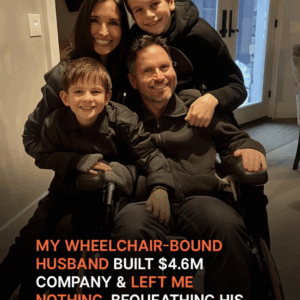For fifteen years, I believed Paul and I had built a strong blended family. He had stepped into the role of stepfather to my son, Jude, with care and devotion—helping with schoolwork, celebrating milestones, and forming a bond that felt genuine. I always thought our marriage worked because of our mutual respect and shared commitment to supporting each other’s children equally.
But when Jude’s college plans became real, everything shifted. Faced with overwhelming tuition costs, I expected us to tackle them together. Instead, Paul refused, saying his priority was buying a car for his own son’s sixteenth birthday. Then he delivered the crushing blow: now that Jude was eighteen, he was “no longer his responsibility.” His words left me gutted, making me question the authenticity of all the years he had acted like a father to my boy.
In the days that followed, I carried the weight of disappointment but knew I had to fight for Jude. I researched scholarships, grants, and student loans, reaching out to relatives for help where I could. Jude and I had an honest conversation about the financial realities, and together we made a plan. It wasn’t easy, but it brought us closer, reminding me of our strength and resilience.
Eventually, I confronted Paul again, calmly but firmly. I reminded him of the bond he had built with Jude and how walking away now would undermine everything they had shared. Though defensive at first, I saw hesitation in him—maybe even guilt. By the end, he agreed to reconsider and promised to find ways to help without neglecting his own son. It wasn’t a perfect resolution, but it gave me hope that the man I thought I knew was still there, willing to step up.





